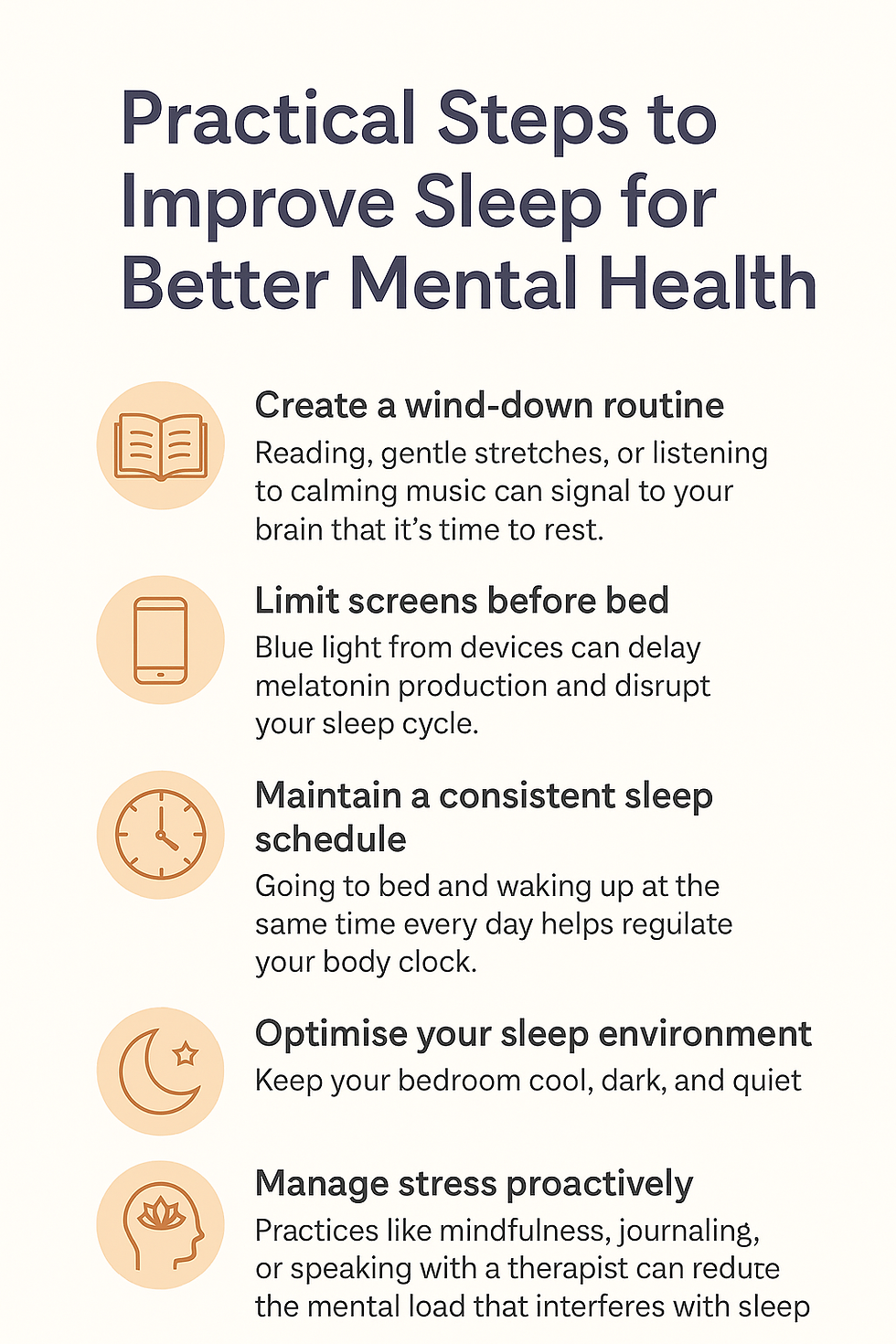Move Your Mood: How Physical Activity Supports Mental Health
- Deborah Marks
- Sep 24, 2025
- 3 min read

Why movement matters for the mind
We often think of exercise as a body goal, but in therapy, I see it as a nervous system tool. Regular physical activity signals safety to the brain, steadies the stress response, and builds a felt sense of capability. You do not need a gym membership or perfect routines. Small, repeatable bouts of movement can shift mood, improve clarity, and support sleep.
Small, repeatable bouts of movement can shift mood, improve clarity, and support sleep.
The brain and body link explained simply
When you move, your body releases helpful neurochemicals, including endorphins and endocannabinoids, that can lift your mood and reduce pain. Blood flow to the brain increases, which supports concentration and learning. Over time, movement helps regulate cortisol, the stress hormone, which means your baseline anxiety can soften. Many people also notice better sleep quality, which then compounds the benefits the next day.
Mood, anxiety, and trauma recovery
For low mood, movement offers structure and momentum. Even ten minutes of brisk walking can create a small sense of achievement, which counters the heaviness of depression. For anxiety, rhythmic, predictable movement, such as walking, swimming, or cycling, can soothe a busy mind and give your body an outlet for the energy of worry. For trauma, gentle, choice-led activity can help you reconnect with your body in safer ways. This works best alongside a trauma-informed therapy plan, and always at a pace that respects your window of tolerance.
Sleep, attention, and stress
Regular activity supports deeper, more restorative sleep, especially when finished at least a few hours before bedtime. Movement also sharpens attention. Many clients describe feeling more anchored afterward, less scattered, and more able to prioritize. Stress becomes easier to carry when your body has practiced moving through it, rather than holding it all in.
Stress becomes easier to carry when your body has practiced moving through it, rather than holding it all in.
Getting started without overwhelm
Begin with what is easiest and most accessible. If you live on the Gold Coast, a short walk at Burleigh or Runaway Bay can tick movement, nature, and sunlight in one go. Pair a daily task with movement, for example:
walk during one phone call
calf raises while the kettle boils
stretch while a podcast plays
Keep your first goal tiny and consistent, such as five minutes after lunch, three days a week. Progress happens through repetition, not intensity.
Make it meaningful
Choose activities that match your values. If connection matters, try a walking catch-up with a friend, or a beginner-friendly class where you can go at your own pace. If calm is your aim, consider slow ocean swims, gentle yoga, tai chi, or a quiet bike ride. If you like measurable progress, track minutes moved per week, not only steps or distance. Let the metric serve your wellbeing, not rule it.
Let the metric serve your wellbeing, not rule it.
Safety notes and pacing
If you have medical conditions, injuries, or you are returning after a long break, talk with your GP or allied health team. Start low, go slow, and notice how your body responds. Soreness can be normal, whereas sharp pain is a signal to stop. If exercise has felt loaded or shaming in the past, we can redesign the approach so it feels kind, sustainable, and aligned with your life.
How therapy can help
Movement plans work best when they fit your story. Therapy can help you explore beliefs about your body, shame or fear linked to exercise, and the barriers that get in the way. We can pair EMDR or other modalities with simple movement practices to support regulation between sessions. Together, we create routines that are compassionate, realistic, and anchored to your values.
If you feel some extra support is needed, you are welcome to book a private session with Hope Prevails on the Gold Coast. We will start where you are, set kind goals, and design small, repeatable steps that fit your life.
Phone or online sessions available
Private clients welcome



Comments